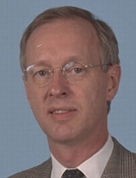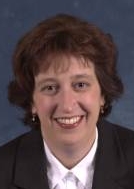

|
|
|
|
|
|
|
|
||||
| WS-Tu1: Planning and Scheduling using Multiple Criteria | WS-We1: Knowledge Engineering Tools and Techniques for AI Planning | |||
| WS-Tu2: Planning via Model Checking | WS-We2: Planning for Temporal Domains | |||
| WS- Tu3: Is There Life Beyond Operator Sequencing? -- Exploring Real World Planning | WS-We3: On-line Planning and Scheduling | |||
| TUT-Tu1: Greedy On-line Planning. (AM) TUT-Tu2: Constraint-Based Scheduling in an A.I. Planning and Scheduling Perspective. (PM) |
TUT-We1: Planning as Model Checking. | |||
|
|
||||
|
|
|
|
|
|
|
|
|
|
|
|
||||||||
|
|
||||||||
|
|
||||||||
|
|
||||||||
|
|
||||||||
|
|
||||||||
|
|
||||||||
|
|
||||||||
The AIPS'02 Chairs are happy to announce
that the two papers :
A knowledge-based approach to planning with incomplete information and sensing.
R.P.A. Petrick and F.Bacchus (session 1)
Planning for distributed execution through use of probabilistic opponent
models. P.Riley and M.Veloso (session 10)
received AIPS'02 Best Paper Awards.
Bernhard Nebel (AIPS/KR Joint invited speaker , Thursday, 25th)
The philosophical soccer player
The main task of a soccer player is to score goals. However, there are moments in life when questions like the following become relevant: Is the ball I am seeing a hallucination or is it real? Should I revise my beliefs about where the ball is? And if so, what is the next action I should execute? Would this action be to the benefit of my team? In the talk I will address these questions and show how one can create a successful robotic soccer team by giving the right answers.
Bernhard Nebel received his Ph.D. (Dr. rer. nat.) from the University of Saarland in 1989. From 1993 to 1996 he held an Associate Professor position (C3) at the University of Ulm. Since 1996 he is Professor at Albert-Ludwigs-Universität Freiburg. Among other professional services, he served as the Program Co-chair for the 3rd International Conference on Principles of Knowledge Representation and Reasoning (KR'92) and as the Program Chair for the 17th International Joint Conference on Artificial Intelligence (IJCAI'01). In addition, he is a member of the editorial boards of Artificial Intelligence and AI Communication and he is the Research Note editor of Artificial Intelligence. His main research interests are knowledge representation and reasoning, planning, and robotics with an emphasis on robotic soccer.
Jan Karel Lenstra (Friday, 26th)
Local search in combinatorial optimization
Combinatorial optimization is the discipline of decision making in the case of discrete alternatives. In the past 25 years, the area has been subject to significant progress on at least three fronts. Advances in linear programming and polyhedral techniques have enourmously extended the realm of methods that are guaranteed to find optimal solutions. The theory of design and analysis of algorithms has taught us a lot about performance bounds that can or probably cannot be met in polynomial time. And there has been a surge in the development of heuristics solution approaches, which come under the general heading of local search. I will review these developments, emphasizing developments in local search.
Jan Karel Lenstra was researcher at CWI
in Amsterdam from 1969 until 1989 and has been Professor of Optimization
at the Technische Universiteit Eindhoven since 1989. His research
interests are in combinatorial optimization, in particular complexity,
approximation, routing, and scheduling. He has been chair of the
Mathematical Programming Society, editor-in-chief of Mathematics
of Operations Research, and chair of the Wiskundig Genootschap
(the Dutch Mathematical Society). He is presently Dean of the
Department of Mathematics and Computer Science in Eindhoven.
Martha Pollack (Saturday, 27th)
Plan-Management Assistants: From Homework
Helpers to Cognitive Orthotics
Much of the work in AI planning has been in the context of autonomous-agent design: the goal is to develop algorithms and heuristics that can be used by autonomous systems that need to plan their actions. In this talk, I will describe an alternative use for planning technology: helping people manage their plans. I will describe how techniques developed in the planning community-including methods for plan generation, plan recognition, and execution monitoring-can be integrated with one another and with techniques from other areas, such as workflow management, to build a variety of plan-management assistants. Potential users of such systems range from schoolchildren learning to manage their homework assignments, to adults using smart PDAs to manage their work activities, to elderly people with memory decline using cognitive orthotics to help manage their activities of daily living. I will provide examples of such systems, including Autominder, a cognitive orthotic for the elderly being developed in my research group.
Martha E. Pollack is Professor of Computer
Science and Engineering at the University of Michigan. She was
previously a Professor at the University of Pittsburgh, and a
Senior Computer Scientist at SRI International. Pollack, who received
her Ph.D. from the University of Pennsylvania, is a Fellow of
the AAAI; amongst her other honors is the Computers and Thought
Award (1991). She is currently serving as Executive Editor of
the Journal of Artificial Intelligence Research. Her research
interests are in plan generation, plan management, temporal reasoning,
computational models of rationality, and assistive technology
for cognitive impairment.
| 107 | Structure and Complexity in Planning with Unary Operators | Domshlak Carmel,Department
of Computer Science Ronen Brafman; Ben-Gurion University of the Negev |
| 112 | On Control Knowledge Acquisition by Exploiting Human-Computer Interaction | Aler, Ricardo,
Universidad Carlos III de Madrid Daniel Borrajo, Universidad Carlos III de Madrid, |
| 114 | Symbolic Pattern Databases in Heuristic Search Planning | Edelkamp, Stefan,Computer Science Institut; |
| 115 | The FAR-OFF system: A Heuristic Search Case-Based Planning | Tonidandel, Flavio,University
of Sao Paulo Marcio Rillo ; University of Sao Paulo |
| 118 | Plan Representation for Robotic Agents | Beetz, Michael, K,Department of Computer Science IX |
| 124 | Local Search Topology in Planning Benchmarks: A Theoretical Analysis | Hoffmann, Joerg,University Freiburg; |
| 130 | Extending the Exploitation of Symmetries in Planning | Fox, Maria,University
of Durham, UK Derek Long ; University of Durham |
| 131 | Filtering Algorithms for Batch Processing with Sequence Dependent Setup Times | Vilim, Petr,Charles
University; Bartak, Roman ; Charles University; |
| 134 | Execution Monitoring with Quantitative Temporal Dynamic Bayesian Networks | Colbry, Dirk,
J,University of Michigan Bart Peintner; University of Michigan Martha E. Pollack,University of Michigan |
| 135 | Applying Domain Analysis Techniques for Domain-Dependent Control in TALplanner | Kvarnström, Jonas,Linköping University, Sweden |
| 137 | Universal Quantification in a Constraint-Based Planner | Golden, Keith,NASA
Ames Research Center Jeremy Frank; NASA Ames Research Center |
| 138 | A Plan-Based Personalized Cognitive Orthotic | McCarthy, Colleen
E,University of Pittsburgh Martha Pollack; University of Michigan |
| 139 | Decidability and Undecidability Results for Planning with Numerical State Variables | Helmert, Malte,Albert-Ludwigs-Universitaet Freiburg; |
| 143 | An Interactive Method for Inducing Operator Descriptions | McCluskey, T,
L,School of Computing and Mathematics; Richardson,N,E ; The University of Huddersfield Simpson,R,M ; The University of Huddersfield |
| 146 | Active Coordination of Distributed Human Planners | Myers, Karen,
L.,Artificial Intelligence Center Peter A. Jarvis, SRI International Thomas J. Lee, SRI International, |
| 149 | CaMeL: Learning Methods for HTN Planning | Okhtay Ilghami,University
of Maryland Dana Nau ; University of Maryland Hector Munoz-Avila ; Lehigh University David Aha ; Naval Research Laboratory |
| 152 | On the Role of Ground Actions in Refinement Planning | Younes, Hakan,
L,Carnegie Mellon University Reid Simmons; Carnegie Mellon University |
| 153 | Estimated-Regression Planning for Interactions with Web Services | McDermott, Drew V.,Yale University; |
| 155 | Faster Probabilistic Planning Through More Efficient Stochastic Satisfiability Problem Encodings | Majercik, Stephen
M.,Bowdoin College Andrew P. Rusczek ; Bowdoin College |
| 157 | Speculative Execution for Information Gathering Plans | Barish, Greg,University
of Southern California / Information Sciences Institute Craig A. Knoblock; University of Southern California / Information Sciences Institute |
| 164 | Fragment-based Conformant Planning | Kurien, James
A,Xerox Palo Alto Research Center P. Pandurang Nayak; Stratify, Inc. David E. Smith; NASA Ames Research Center |
| 166 | Improving Heuristics for Planning as Search in Belief Space | Bertoli, Piergiorgio,IRST
- Istituto per la Ricerca Scientifica e Tecnologica Alessandro Cimatti; IRST |
| 169 | LPG: A Planner Based on Local Search for Planning Graphs with Action Costs | Gerevini, Alfonso,Università
di Brescia, Dipartimento di Elettronica per l'Automazione Ivan Serina; DEA, Università di Brescia |
| 170 | On the Identification and Use of Hierarchical Resources in Planning and Scheduling | Bernd Schattenberg,Dept.
of Artificial Intelligence Susanne Biundo; Dept. of Artificial Intelligence, University of Ulm |
| 172 | Constraint model-based planning and scheduling with multiple resources and complex collaboration schema | Jean-Clair Poncet,Axlog
Ingénierie Guettier Christophe ; Xerox Palo Alto Research Center Bertand Allo ; Axlog Ingénierie Vincent Legendre ; Axlog Ingénierie Nelly Strady-Lécubin ; Axlog Ingénierire |
| 175 | Partially Observable Planning as Backward Search with BDDs | Rintanen, Jussi, T,Albert-Ludwigs-Universität Freiburg |
| 181 | Analyzing Plans with Conditional Effects | Winner, Elly,Computer
Science Department Manuela Veloso; Computer Science Department, Carnegie Mellon University |
| 183 | Planning for Distributed Execution Through Use of | Riley, Patrick
F.,Computer Science Department Manuela Veloso ; Carnegie Mellon University |
| 186 | The Logic of Reachability | Smith, David E.,NASA
Ames Research Center; Ari Jonsson ; RIACS |
| 187 | Heuristic Search-Based Replanning | Koenig, Sven,College
of Computing, Georgia Institute of Technology David Furcy; Georgia Institute of Technology Colin Bauer; Georgia Institute of Technology |
| 188 | A Knowledge-Based Approach to Planning with Incomplete Information and Sensing | Bacchus, Fahiem,University
of Toronto Ronald Petrick ; University of Toronto |
| 190 | Planning Graph-based Heuristics for Cost-sensitive Temporal Planning | Do, Minh B.,Arizona
State University, The United States Subbarao Kambhampati; Arizona State University |
AIPS'02 is happy to offer to AIPS participants and accompanying persons a guided (English) pedestrian visit of Toulouse downtown. The visit will start around 10:00 near the Toulouse tourism office (Place du Donjon) and last two hours.
The visit is offered by AIPS but registration is required. If you are interested in joining the visit, please send an e-mail to Jackie Som and specify the name of the persons coming, or register at the registration desk during the conference..
| Comments on the WEB site to : Félix Ingrand |
Last modified: |